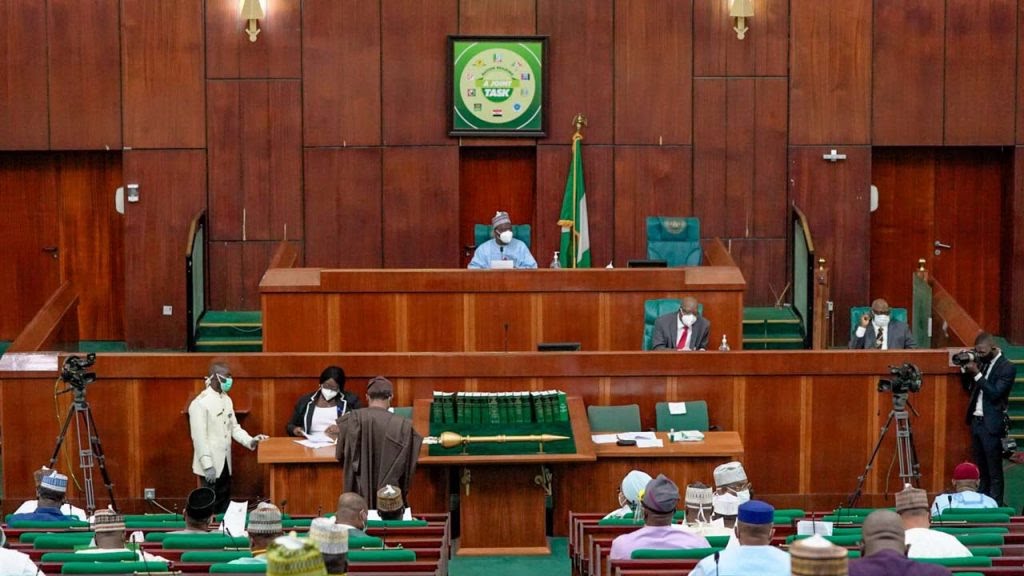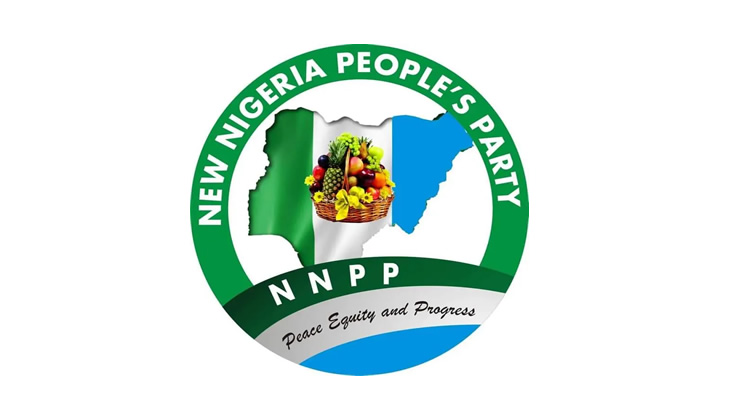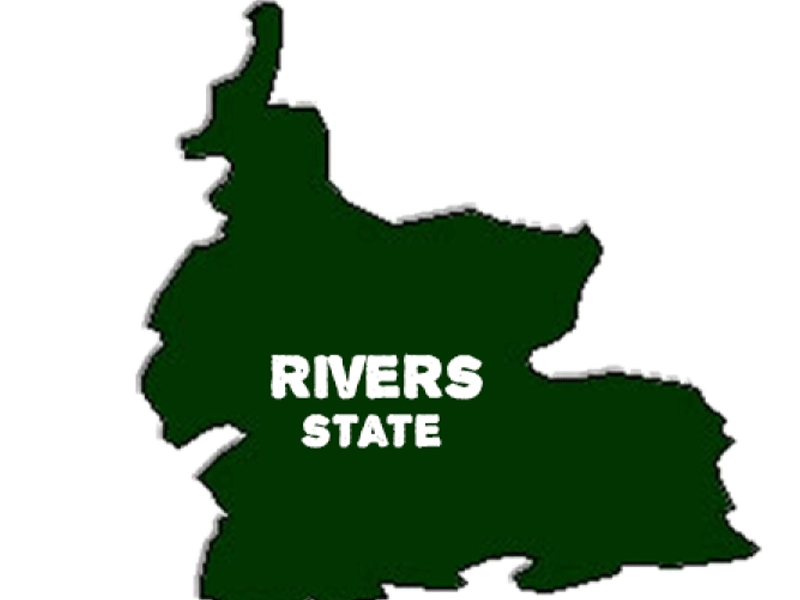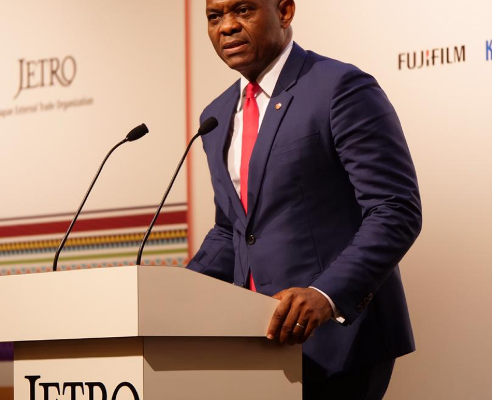Politics
Opposition Rift: Speaker Candidates Abbas, Betara Split Coalition

The coalition of minority members-elect in the 10th House of Representatives has become divided due to contests for the positions of Speaker and Deputy Speaker.
The ’10th Assembly Greater Majority,’ a group of minority lawmakers-elect, is reportedly backing Aliyu Betara, a member from Borno State, while a new coalition has emerged in support of Tajudeen Abbas, who has been endorsed by the All Progressives Congress.
A significant number of lawmakers-elect are withdrawing from the ’10th Assembly – Greater Majority,’ a coalition comprising members from the Peoples Democratic Party (PDP) and other minority parties in the 10th House.
The discontented opposition members, particularly those hailing from Rivers State and loyal to Governor Nyesom Wike, have announced their intention to establish a parallel coalition called the Minority Parties’ Forum, set to be launched today (Monday).
The new development came as the 10th Assembly: Greater Majority, planned to unveil aspirants for the positions of the Speaker and the Deputy Speaker in the opposition camp this week.
On May 2, 2023, the coalition had previously stated its intention to nominate candidates for these roles from its own members.
The coalition justified its decision by citing the “divergent opinions” emerging from the ruling All Progressives Congress (APC). The opposition lawmakers-elect expressed their determination to enter the fray by presenting viable and alternative leadership choices, highlighting their coalition’s strength of 183 members compared to the ruling party’s 177.
Consequently, the 10th Assembly: Greater Majority has established an 11-member committee with the responsibility of shortlisting, screening, and ultimately recommending aspirants within a week’s time.
The committee is composed of Nicholas Mutu from the People’s Democratic Party (PDP) serving as Chairman, Victor Ogene from the Labour Party (LP) as Secretary, and Abdulmumini Jibrin from the New Nigeria People’s Party (NNPP) as Deputy Chairman. Other members include Oluwole Oke, Jonathan Gbefwi, Beni Lar, Ali Isa, Alhassan Rurum, Mathew Kuzalio, Salisu Majigiri, Nnabuife Chinwe, Gwacham Maureen, and Idris Salman.
According to Ogene, who spoke to our correspondent on Saturday, some members of the 10th Assembly: Greater Majority have indicated interests in running for the leadership positions. He had also hinted that the opposition members might consider and adopt a candidate among the aspirants in the ruling APC.
However, a member-elect, Solomon Bob (PDP/Rivers), in an interview with our correspondent on Sunday, disclosed that some members of the 10th Assembly: Greater Majority were pulling out and launching a new group of opposition members on Monday.
Bob alleged that the 10th Assembly: Greater Majority was billed to adopt the current Chairman of the House Committee on Appropriations, Betara, as its candidate.
Ironically, the Deputy Chairman of the House Committee on Appropriations, Iduma Igariwey (PDP/Ebonyi), is said to be leading the factional minorities’ coalition which is billed to adopt candidates anointed by the APC. An NNPP member from Kano State, Alhassan Rurum, will be the secretary of the pressure group.
The lawmaker said, “I belong to Joint Task – 10th Assembly; I don’t belong to the Greater Majority. In fact, they are the minor minority now, with the way we are going. We will form another coalition called Minority Parties’ Forum. We are launching tomorrow (Monday). It is parallel to that one, so that we will let the whole world know that there is one Minority Parties’ Forum.
“They cannot come and seek to monopolise the perception out there that the minorities are in one basket and they are (allegedly) pushing for Betara. We have steered the public perception, giving the false impression that all minorities are for Betara. That is not true.”
When asked about the leader of the new coalition, Bob said, “Igariwey is the one coordinating (the coalition) and Alhassan Rurum is the secretary.”
Responding to a question on why Igariwey would oppose Betara’s speakership ambition despite being deputy chairman and chairman of the same committee, respectively, Bob said, “Igariwey has not been with Betara from Day 1. Being deputy to Betara in a term that is ending is one thing, trying to usher in another term is a different thing.”
When asked about the claim by the 10th Assembly: Greater Majority that has more members-elect than the APC caucus, the Rivers lawmaker claimed that the Minority Parties’ Forum would have more opposition members.
Bob stated, “Where will they get the numbers from? Everybody in Oyo State; the 14 members are with us. In Osun, out of nine, they have only one and that is Wole Oke; all the eight are with us. In Rivers, all 13 members are with us. In Akwa Ibom, all 10 are with us. Where, then, will they get the numbers from?”
The PDP member, however, admitted that the Minority Parties’ Forum would adopt the APC candidates. “We are going for Tajudeen Abbas, the person endorsed by the APC,” he said.
When contacted, Igariwey confirmed the development but said the move was only to reposition the 10th Assembly: Greater Majority.
He said, “It is actually another group in the minority caucus. Greater Minority is not our slogan. It is still the same group but the only difference is that we are trying to reposition the group. It is still the same group of minorities being populated by the same people.”
When asked about leaders and members of the Greater Majority who have been attending meetings by the Joint Task – 10th Assembly, a coalition of members-elect of the APC and opposition parties which has adopted the zoning plan of the ruling party.
Igariwey said, “We are going to have our meeting tomorrow. We will come out with something like a communiqué with which you will be better informed about it.”
Ogene (LP/Anambra), who speaks for the 10th Assembly: Greater Majority, was contacted on the number of aspirants in the opposition coalition who had indicated an interest in the speakership race as well as the emergence of another group.
He, however, referred our correspondent to the coordinators of the group, Messrs Fred Agbedi (PDP/Bayelsa), Jonathan Gbefwi (SDP/Nasarawa) and Dachung Bagos (PDP/Plateau).
However, neither Agbedi nor Gbefwi and Bagos picked up the calls made to them.
Meanwhile, ahead of the June 13 inauguration of the 10th Senate, the South-South Youth Alliance on Sunday said those against the choice of Godswill Akpabio as Senate President were against the “will of God” for Nigeria.
The youth group in a statement issued in Abuja described Akpabio as a “democrat“ who is qualified for the position of the top senate job.
The statement signed by the coordinator of the group, Benjamin Nwizua reads, “Senator Akpabio was a performing governor of Akwa Ibom State who earned the title, uncommon governor. He proceeded to the Senate where he became Minority leader and later minister of Niger Delta Affairs.”
Also, a group of the ruling party under the aegis of the Progressives Foundational Movement has thrown its weight behind Abass as the next Speaker.
The group also pleaded with the president-elect, Asiwaju Bola Tinubu, and the leadership of APC not to bow to pressure and subtle threat to remove Abbas from the list of anointed candidates.
On Sunday, the plea was conveyed through a statement released in Abuja by Aganaba Johnson, the National Coordinator of the PFM (Presidential Front Movement).
However, a different group called the Northern Business Roundtable has urged Senators elected from different party affiliations to unite in support of Abdulaziz Yari, the former Governor of Zamfara State, in his bid for the Senate Presidency.
During a press briefing in Abuja on Sunday, Larai Kolo, the group’s spokesperson, emphasized Yari’s aptitude and integrity, asserting that he possesses the necessary qualities to lead the Senate.
Politics
Akpabio’s Petition Forces Judge To Stepdown From Natasha’s Suit
The judge to whom the suit filed by suspended Senator Natasha Akpoti-Uduaghan was assigned at the Federal High Court, Abuja has stepped down from the matter.
Justice Obiora Egwuatu made the disclosure on Tuesday, in Abuja, explaining that his decision was informed by a petition questioning his impartiality, which was submitted by the Senate President Godswill Akpabio.
The matter had been scheduled for hearing, however, when the court clerk called it up, the judge held that he was stepping aside.
He said he would return the case file to the Chief Judge, who would assign it to another judge.
ALSO READ: Ifon/Ilobun/Erin Osun Crisis: Adeleke Inspects Conflict Zones, Orders Distribution Of Relief Items
Recall that on March 4, 2025 Justice Egwuatu issued an interim order stopping the Senate Committee on Ethics, Privileges, and Public Petitions from proceeding with disciplinary actions against Akpoti-Uduaghan.
The embattled senator was accused of violating the Senate’s rules.
The judge ruled that the disciplinary process should be stood down, until the case was decided.
He also gave the defendants 72 hours to explain why the court should not stop them from investigating the senator without following the rules laid out in the 1999 Constitution, the Senate Standing Order 2023, and the Legislative Houses (Powers and Privileges) Act.
In addition, Justice Egwuatu allowed the senator to serve legal documents on the defendants using substituted means.
The court ordered that the documents be given to the Clerk of the National Assembly or pasted at the National Assembly premises.
They were also to be published in two national newspapers.
The interim order came after the senator filed an urgent application.
However, despite the court’s ruling, the Senate Committee still held its meeting and suspended her for six months.
Later, after the defendants applied, Justice Egwuatu amended his earlier order.
He removed the part that prevented the Senate from taking any action while the case was ongoing.
Meanwhile, Akpabio’s legal team, led by Kehinde Ogunwumiju, questioned the court’s authority to interfere in Senate affairs.
Politics
State Of Emergency In Rivers Necessary – NNPP

The New Nigeria Peoples Party (NNPP) has thrown its weight behind President Bola Tinubu’s declaration of a state of emergency in Rivers State, arguing that decisive action was necessary to prevent further deterioration of the crisis.
Speaking in an interview with the News Agency of Nigeria (NAN) on Saturday in Lagos, NNPP National Chairman, Dr. Agbo Major, stressed that no responsible government would sit back and allow instability to escalate unchecked.
“President Tinubu is the Chief Security Officer of Nigeria. The information available to him as president from intelligence sources may not be in public purview,” Major said.
READ MORE: NNPP Has Failed Kano, APC Will Reclaim Power Ganduje
He added that the decision to suspend the state government was based on the severity of the crisis, which could have worsened without swift intervention.
“The government in Rivers was suspended, and no one can actually say what would have happened by now, judging from the deepening crisis.
“The crisis was further compounded by some leaders who, instead of offering advice or promoting peace during the turmoil, allowed it to escalate before later stepping in to criticize,” he stated.
Major described the security situation in Rivers State as unacceptable, warning that it posed a threat to lives and property.
He defended President Tinubu’s leadership style, noting that making tough decisions, even when unpopular, was a mark of true governance.
“It was a difficult decision to remove the oil subsidy; one that no previous administration was willing to make, whether right or wrong. Tinubu took that step, and we are gradually emerging from the crisis, moving forward for the better,” he explained.
According to him, the government must have had access to intelligence beyond what was available in the public domain before making its decision.
“Six months or less of the emergency rule is in the interest of Rivers residents, democracy, and Nigeria. It is our hope that indigenes of the state shall be streetwise and disregard those with personal interests, who are crying foul,” Major added.
The NNPP chairman urged Nigerian leaders to be mindful of their statements, warning that inflammatory remarks could worsen tensions in Rivers State and affect national stability.
“The Renewed Hope Agenda for a greater Nigeria should be our focus. It is centered on hard work, trust, science and technology, agriculture, education, the rule of law, and more. Focus should be on constructive criticism that will make for greater performance,” he advised.
Addressing concerns about Federal Capital Territory (FCT) Minister Nyesom Wike’s involvement in Rivers politics, Major argued that Wike, as a former governor and indigene, naturally has interests in the state.
“Wike as a minister is neither the Inspector General of Police, Chairman of EFCC, Attorney General of the Federation, Chief Judge of the Federation, nor President of Nigeria. If our institutions are not compliant with their statutory functions, why can’t we leave Wike alone to live his life?”
He also emphasized that while opposition to government is vital for democracy, it must be constructive and aimed at fostering good governance.
“Opposition to the government at the center is the lifeblood of democracy and a catalyst for good governance when it is constructive and aimed at enhancing productivity.
“However, if opposition simply means dismissing everything the government does as wrong, then something is definitely amiss,” Major concluded.
Politics
Okpebholo Stands With Tinubu On Rivers State

Edo State Governor, Senator Monday Okpebholo has expressed solidarity with President Bola Ahmed Tinubu over the state of emergency declared in Rivers State.
The Chief Press Secretary to the Edo State Governor, Fred Itua, vented this in a statement in Benin City on Thursday night, asserting that his principal was not consulted by his colleagues in the South-South Governors’ Forum before going public with their view.
ALSO READ: Global Money Week: NGX, CBN, MinieMoney Preach Financial Literacy To Students
Itua wrote, “The position by the Governors of the South-South, opposing the declaration of a State of Emergency in Rivers State by President Bola Ahmed Tinubu, did not get the nod of Governor Okpebholo. Governor Okpebholo was neither consulted nor informed.
“While Governor Monday Okpebholo acknowledges the right of other Governors in the South-South geopolitical zone to take a position, he, however dissociates himself from any statement that opposes the declaration of a State of Emergency in Rivers State by President Bola Ahmed Tinubu.
“Bola Ahmed Tinubu, President of the Federal Republic of Nigeria and the Commander-In-Chief of the Armed Forces, understands the issues at stake.
“Governor Okpebholo supports actions so far taken by President Bola Ahmed Tinubu that will bring lasting solutions and peace to Rivers State and the South-South geopolitical zone.”



















